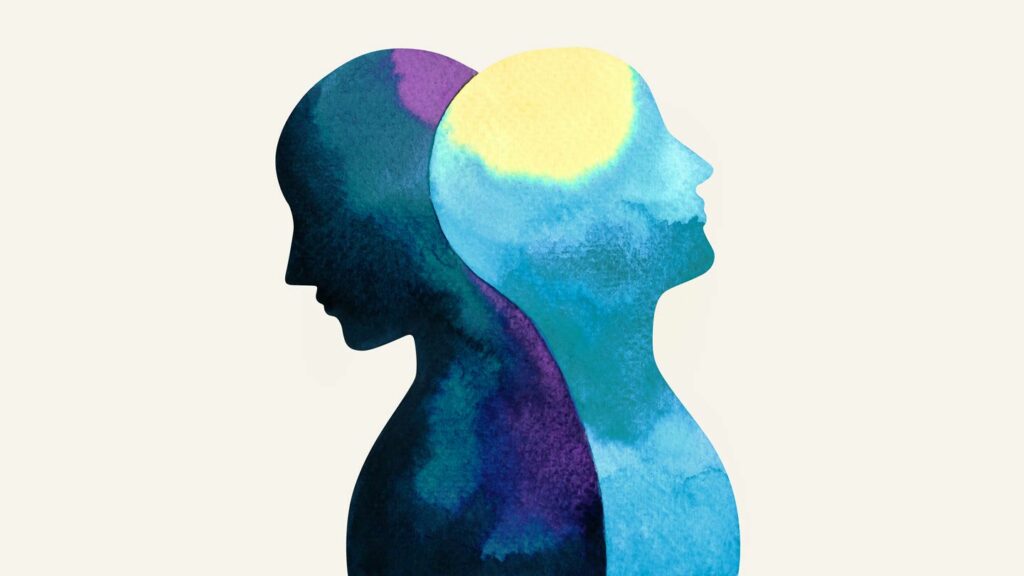Bipolar disorder is a mental illness that can cause extreme mood swings. People who have bipolar disorder often go from feeling really high and happy to feeling really low and sad. This can be a difficult condition to live with, both for the person who has it and for their loved ones. In this blog post, we will discuss what bipolar disorder is, its symptoms of it, and how it can be treated. We will also provide advice for people who have loved ones with bipolar disorder.
Contents
- 1 What is Bipolar Disorder?
- 2 Types of Bipolar Disorder
- 3 Symptoms of Bipolar Disorder
- 3.1 Racing Thoughts
- 3.2 Inability to Sleep
- 3.3 Irritability
- 3.4 Feeling Sad or Empty
- 3.5 Feeling Hopeless
- 3.6 Having Trouble Concentrating
- 3.7 Feeling Guilty or Worthless
- 3.8 Excessive Spending
- 3.9 Anxiety
- 3.10 Energy Changes
- 3.11 Poor Judgment
- 3.12 Hallucinations and Delusions
- 3.13 Lack of Motivation
- 3.14 Paranoia
- 3.15 Withdrawal from Loved Ones
- 4 Causes of Bipolar Disorder
- 5 Diagnosis of Bipolar Disorder
- 6 Negative Impacts of Bipolar Disorder
- 7 Treatment of Bipolar Disorder
- 8 Managing Bipolar Disorder
- 9 Conclusion
- 10 A Word From Therapy Mantra
What is Bipolar Disorder?
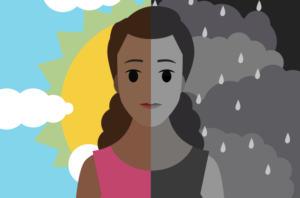 Bipolar disorder is a mental illness that causes extreme mood swings. These mood swings can range from feeling very happy and energetic to feeling very sad and hopeless.
Bipolar disorder is a mental illness that causes extreme mood swings. These mood swings can range from feeling very happy and energetic to feeling very sad and hopeless.
This disorder is also known as manic depression. It also affects how you think, act, and feel. However, the symptoms of bipolar disorder can be managed with proper treatment from a mental health professional. Sometimes this disorder can go undiagnosed for years, which is why it’s important to know the signs and symptoms.
This disorder can be a result of a chemical imbalance in the brain. It’s not fully understood why this happens, but it is believed that genetics and environment may play a role.
Bipolar disorder can affect people of any age, but it typically starts during late adolescence or early adulthood. Sometimes it is mistaken for ADHD or depression.
Types of Bipolar Disorder
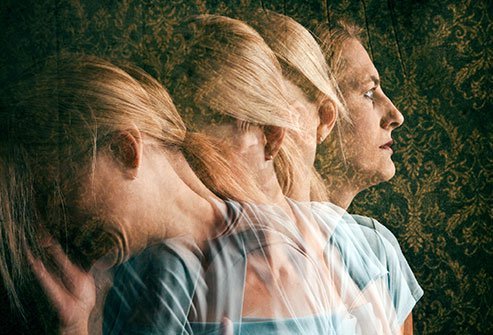
There are five different types of bipolar disorder: type I, type II, cyclothymic disorder (cyclothymia), mixed features, and other specified and unspecified bipolar disorders.
Type I Bipolar Disorder
Type I bipolar disorder is the most severe type. It is characterized by manic episodes that last for at least seven days, or if it’s a mixed episode, symptoms of mania and depression occur at the same time. It also includes depressive episodes that last for at least two weeks. Sometimes people with type I bipolar disorder also experience psychotic symptoms, such as hallucinations or delusions.
Type II Bipolar Disorder
This type of bipolar disorder is characterized by a pattern of depressive and hypomanic episodes, but not manic or mixed episodes. Hypomania is an episode that lasts four days with symptoms similar to mania but less severe. This type does not include psychosis or hospitalization because the person can still function during this time period without needing any medical treatment for their condition.
Cyclothymic Disorder (Cyclothymia)
People who are diagnosed with cyclothymia have periods of hypomanic symptoms as well as mild depression over two years, one year in children and adolescents under 18 years old. They do not meet the full criteria for major mood episodes, but their symptoms are significant enough to cause problems in their life. This also includes psychotic symptoms or hospitalization.
Mixed Features
This type of bipolar disorder is characterized by having a mixture of manic and depressive symptoms at the same time, even if they don’t meet the full criteria for either one separately. For example, someone could have racing thoughts along with depression, irritability combined with feelings of hopelessness, etcetera. This includes psychosis or hospitalization due to these mixed episodes occurring during periods when other types would not be diagnosed as such (e.g., the postpartum period after giving birth).
Other Specified and Unspecified Bipolar Disorders
These are bipolar disorders that don’t meet the full criteria for any of the other types listed above. They may have some manic, hypomanic, depressive, or mixed episodes, but not all of them. Sometimes, people who have bipolar disorder don’t meet the full criteria for any type at all. There are various types of bipolar disorders that fall under this category.
Symptoms of Bipolar Disorder
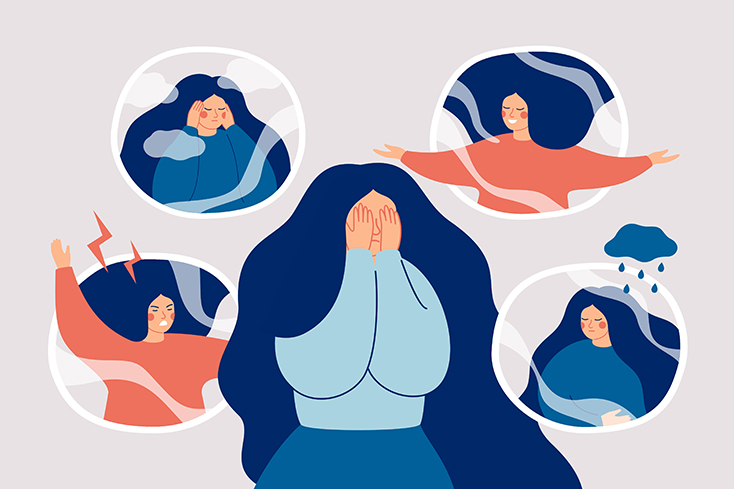
There are many symptoms of bipolar disorder, and they can vary from person to person. However, there are some that are common in most people who have this condition.
Racing Thoughts
There are often times when people with bipolar disorder feel like they can’t keep up with their thoughts. They might have a lot of ideas that come to them all at once and are unable to focus on anything else. This can be very overwhelming and make it difficult to concentrate on anything. Sometimes their thoughts may even seem out of control. People with rapid cycling bipolar disorder (RCBD) tend to experience racing thoughts more often than those who don’t have RCBD.
Inability to Sleep
Many people with bipolar disorder have trouble sleeping due to racing thoughts or because they’re anxious about things. They may also experience insomnia, which is the inability to fall or stay asleep. People with this condition often wake up feeling exhausted no matter how much sleep they get. It also makes it difficult to concentrate during the day.
Irritability
People with bipolar disorder may often be irritable for no reason. They might become easily angered and have a hard time controlling their temper. This can cause problems in relationships and make it difficult to interact with others. There are times when people who have this condition may be very irritable for a long period of time.
Feeling Sad or Empty
People with bipolar disorder often experience periods of feeling sad and empty. They might cry a lot, feel like there is no hope left in life, or even think about suicide if their symptoms are severe enough. Sometimes these feelings can last for a long time. It also makes it difficult to enjoy activities that used to bring them happiness.
Feeling Hopeless
Many people with bipolar disorder feel a sense of hopelessness during their depressive episodes. They may feel like there is no way out and that things will never get better. This can be very discouraging and make it hard to see any reason for living.
Having Trouble Concentrating
People with bipolar disorder often have trouble concentrating on anything because of their racing thoughts or inability to sleep. They might find it hard to focus on tasks at work or school, follow conversations, or remember things. This makes it difficult to do anything effectively when they’re feeling this way.
Feeling Guilty or Worthless
People with bipolar disorder may often feel guilty or worthless during their depressive or manic episodes. They may feel like they’re a terrible person for feeling the way they do or that they don’t deserve to be happy. This can make it hard to feel good about themselves and cause a lot of self-hatred.
Excessive Spending
People with bipolar disorder may sometimes spend a lot of money without realizing it. This is known as spending binges and often happens during manic episodes. The person might buy things they don’t need or spend more money than usual on things. This can lead to financial problems down the road if it’s not addressed
Anxiety
Many people with bipolar disorder also experience anxiety. They may feel anxious all the time, have panic attacks, or be afraid of things that wouldn’t normally cause fear. This can make it difficult to do everyday activities and interact with others.
Energy Changes
People with bipolar disorder often have changes in their energy levels. They might feel really high and energized one minute and then extremely tired the next. This makes it hard to maintain balance in their life since they never know how they’re going to feel from day today.
Poor Judgment
People who are experiencing a manic episode may make poor decisions because their judgment is impaired. For example, they may spend a lot of money they don’t have, impulsively make friends with people who are bad for them, or take risks that could be harmful. This can lead to a lot of problems down the road.
Hallucinations and Delusions
People with bipolar disorder may experience hallucinations or delusions during their manic or depressive episodes. These are things that aren’t real but seem very real to the person experiencing them. For example, someone with this condition might see or hear things that aren’t there, believe that they’re famous or special, or think that others are out to get them.
Lack of Motivation
Many people with bipolar disorder lose all interest in activities they used to enjoy during their depressive episodes. They may feel like they can’t do anything and that nothing will ever be good enough for them. This can make it hard to get things done and cause a lot of frustration in their life.
Paranoia
People with bipolar disorder may also experience paranoia during their manic or depressive episodes. They might feel like others are out to get them, that they’re being watched by the government, or other people want to harm them in some way.
Withdrawal from Loved Ones
Some people with bipolar disorder withdraw from loved ones when they’re having an episode because they don’t want anyone else to know what’s going on inside their heads. This can lead to problems in relationships since the person isn’t able to communicate effectively about what’s bothering them at any given time.”
Causes of Bipolar Disorder
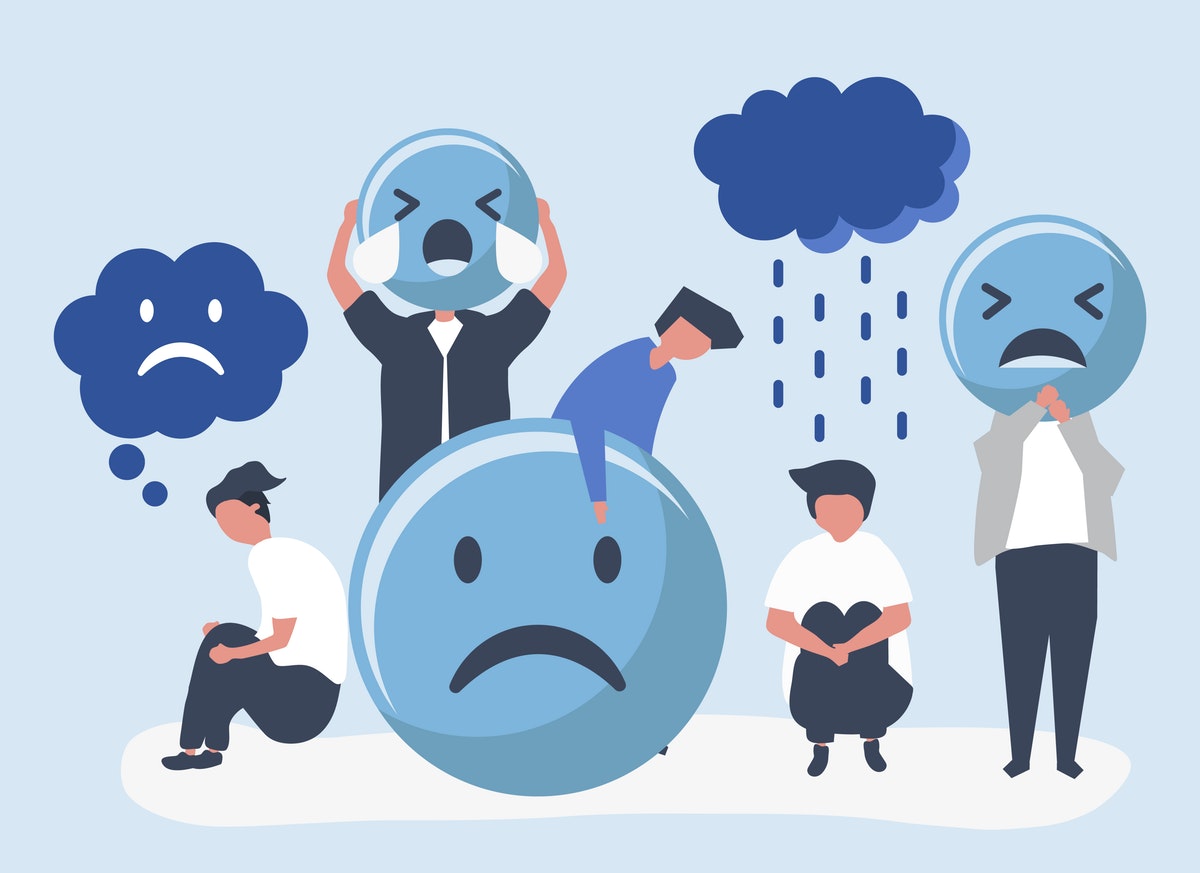
There are many causes of bipolar disorder a well. Some of these are:
Genetics
Genetics can be a factor in bipolar disorder. If someone has a family member with the condition, they have a higher chance of developing it themselves. Sometimes it’s difficult to determine whether something is caused by genetics or another environmental factor, but it’s likely that both contribute to the development of the bipolar disorder.
Brain Chemistry
The chemicals in our brain play a huge role in mood and behavior. When someone has bipolar disorder, it’s possible that their brain chemistry is off balance which can lead to the symptoms mentioned earlier. It also might be because their brain chemistry is different from other people’s brains, so even if they don’t have a family history of this condition it might still affect them.
Environmental Factors
Environmental factors can also play a role in causing bipolar disorder. These include things like stress at work or school, financial problems, relationship issues, etc. There are many possible causes and each person may experience different ones throughout life. Sometimes it’s hard to determine what exactly causes someone’s bipolar disorder, but if you know the symptoms and how they affect your loved one then it will be easier for them to get help from a professional.
Diagnosis of Bipolar Disorder
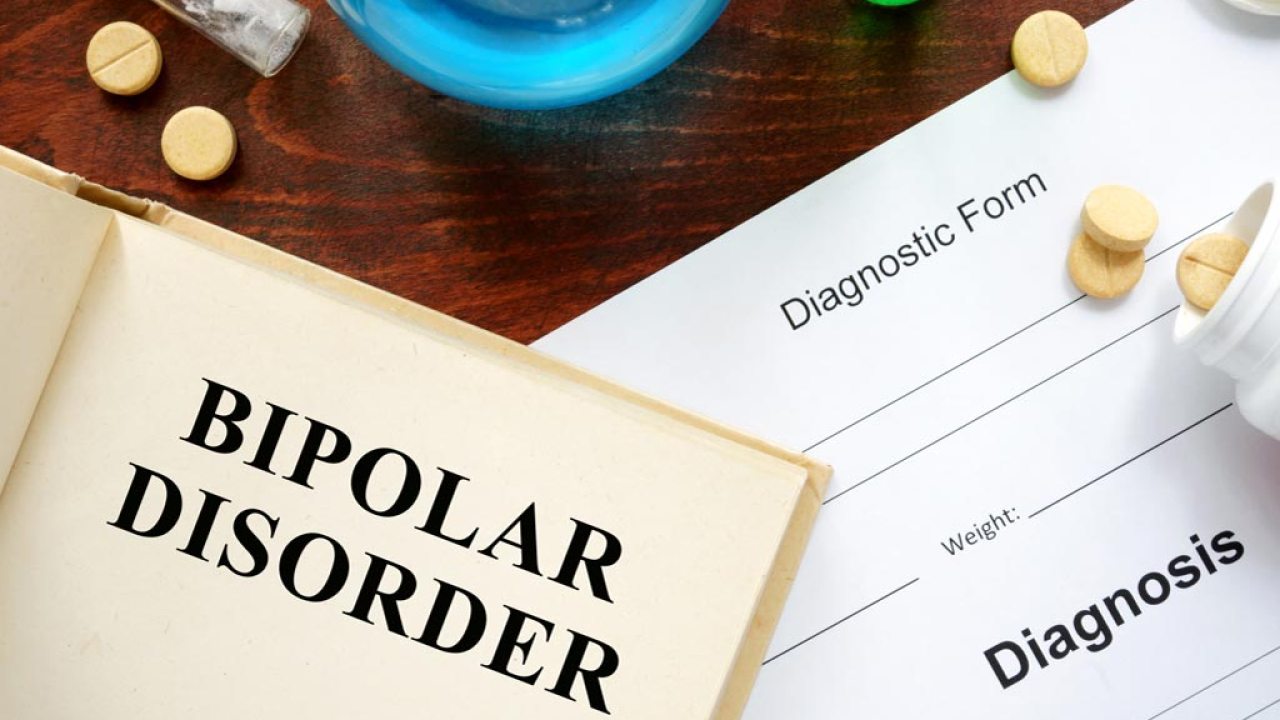
The diagnosis is very important as well as the treatment. The symptoms of bipolar disorder can be similar to other conditions like ADHD, depression, anxiety, and others. There are different ways in which a person can get diagnosed with this disease:
Physical Exam
Sometimes there are physical signs that a person has bipolar disorder. This might include changes in energy levels, mood swings, and more. Sometimes there are no physical signs at all.
Laboratory Tests
There are some tests that a doctor might want to perform in order to see if there is any other problem that could be causing the symptoms of bipolar disorder. These tests can include blood or urine samples, thyroid studies, and others like those.
Mental Health Evaluation
This type of test is usually done with an interview between the patient and mental health professional. The two sides will talk about the symptoms being experienced by the patient as well as his or her past experiences with different moods or behaviors. They will also discuss family history and current life situations that might be contributing factors towards mood swings (such as problems at work).In addition, they may ask questions related to suicidal thoughts or attempts made by the patient.
Self-Tests
To diagnose it there are different types of bipolar disorder self-tests that people can take. The most common type is the Mood Disorder Questionnaire (MDQ). This test asks about different moods and how often they are experienced in a month.
Based on the answers, it will help to determine if someone might have bipolar disorder or not. There are also other tests like the EPDS for postpartum depression which could be used for pregnant women or new mothers who are experiencing symptoms that might indicate bipolar disorder.
Negative Impacts of Bipolar Disorder
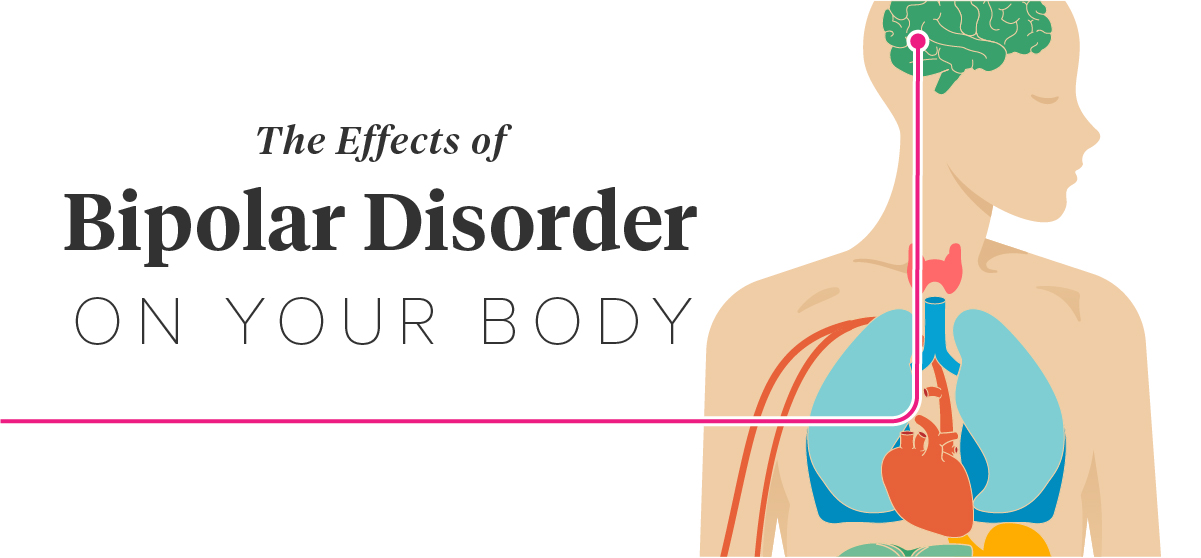
There are many negative impacts of bipolar disorder if it is not properly treated. Some of these are:
Instability
Sometimes there are extreme mood swings that can last for days, weeks, or even months. This makes it difficult to maintain stable relationships and jobs. There can be a lot of ups and downs in your life.
Self-Harm
Some people with bipolar disorder may harm themselves as a way to cope with their emotions. This includes cutting oneself, overdosing on medication, or drinking alcohol in excess. It may also lead to suicide.
Sleeping Issues
People with bipolar disorder often have difficulty sleeping. This can lead to other problems, such as depression and anxiety that make it even harder for them to function in life. There are different types of medications that help people sleep better during the night which may be prescribed by a doctor or psychiatrist if needed (such as antidepressants).
Gambling Habits
Some people who suffer from manic episodes can spend too much money on things they don’t need or gamble more than what is normal for their age group and socioeconomic status. They might also invest large sums into risky ventures like buying houses at inflated prices when there is no way they could afford these purchases long-term – leading to financial later on down the road.
Poor Mental Health
Sometimes there are extreme mood swings that can last for days, weeks, or even months. These high highs and low lows make it difficult to maintain stable relationships with other people as well as jobs. It is also not uncommon for those who suffer from bipolar disorder to harm themselves when they are feeling depressed or suicidal.’
Treatment of Bipolar Disorder
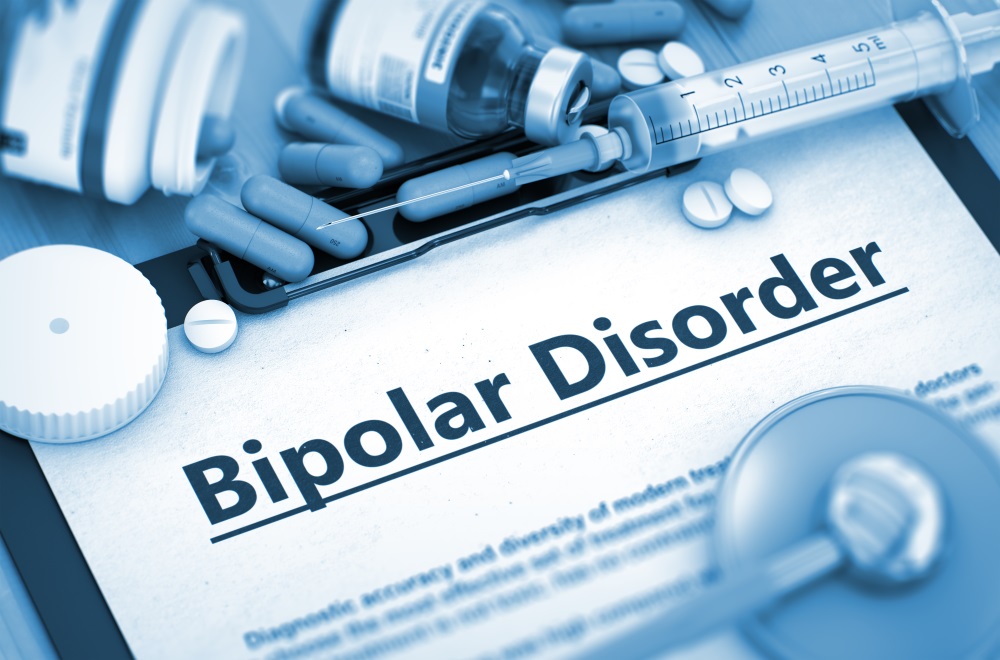
Treating Bipolar disorder is very important for the patient and his or her significant others. Some of thee options are:
Medications
Medications are one such method to treat bipolar disorder. There are many different types of medications that can be prescribed to help a person with bipolar disorder. This method is often used in conjunction with therapy and lifestyle changes.
There are many types of medications that can be used in bipolar disorder such as:
Antidepressants
There are many anti-depressants that are used to help treat bipolar disorder. Some of these medications include:
-Selective serotonin reuptake inhibitors (SSRIs)
-Serotonin and norepinephrine reuptake inhibitors (SNRIs)
-Tricyclic antidepressants (TCAs)
-Monoamine oxidase inhibitors (MAOIs)
Therapy
Therapy is also one method to treat bipolar disorder. There are many benefits of using therapy as part of the treatment plan. This method also means a lot to the patient when it is done in combination with medication.
Some benefits of therapy include:
-learning about bipolar disorder and how to live with it
-gaining helpful coping skills
-reducing symptoms of bipolar disorder
-improving relationships with others
Some of the types of therapy that can be used are:
Individual Therapy
Individual therapy is one of the main types of therapy that is used to treat bipolar disorder. This helps the patient learn how to cope with their illness and manage symptoms. It also provides a safe space for them to talk about what they are experiencing on a daily basis without judgment from others or fear that it will be disclosed outside of therapy sessions.
Group Therapy
Group therapy is one of the most common forms of therapy used to treat bipolar disorder. This type of therapy involves a group session where patients will meet with other people who have been diagnosed with bipolar disorder and a mental health professional in order to talk about their issues and how they can cope with them better.
Family Therapy
Family therapy is one type of group psychotherapy where family members meet together with their therapists in order to address problems within families and improve relationships between family members. These therapists often use techniques such as role-playing exercises, discussions about feelings and emotions, problem-solving skills training activities like brainstorming solutions together collaboratively using ideas generated by all participants rather than just one person who might have more power than everyone else involved (e.g., an adult member versus child). In addition, there are other types of therapists too such as couples counselors who specialize in helping people with relationship problems or marital issues.
Cognitive Behavioral Therapy (CBT)
A form of therapy that focuses on changing negative thoughts and behaviors into positive ones by learning how to identify your triggers so they can be avoided at all costs rather than just confronting them head-on every time they come up during everyday life situations like work meetings where there might be other stressors present besides the trigger itself which could cause an emotional reaction from one’s coworker colleagues (e.g., condescending tones when talking about someone else’s idea.)
Psychoeducation
This type of treatment focuses on educating patients about the causes, symptoms, and treatments available for their condition so that they know what options exist when faced with difficult decisions regarding care management decisions in future situations where medical advice might not be immediately accessible (such as an emergency room visit).
Managing Bipolar Disorder

There are many ways to manage bipolar disorder. Some of these are:
Eating Good Food
Food is one of the most important things to eat. You should try and eat healthily as much as possible. Eating good food always makes you feel better. Sometimes people with bipolar disorder don’t eat properly because they are not hungry or they are eating the wrong things. This can make their mood worse and affect their mental health.
Make sure you try to have a balanced diet with plenty of fruit, vegetables, and whole grains. You should also include protein-rich foods such as meat, fish, eggs, dairy products, and beans. Try to avoid sugary drinks, processed food, and fast food.
Exercising Regularly
Regular exercise is really important for your physical and mental health. It releases endorphins which make you feel happy and improve your moods. Exercise can also help you sleep better and manage your stress levels. It’s recommended that adults do at least 150 minutes of moderate-intensity exercise or 75 minutes of vigorous-intensity every week.
Getting Enough Sleep
Sleep is vital to your health and well-being. It’s really important for you to get enough sleep so that you can function properly throughout each day. If you don’t get enough sleep, it will affect your moods and make them worse. This can lead to irritability, poor concentration, and low energy levels. You should aim to have a regular bedtime routine where possible such as going to bed at the same time every night with no distractions like TV or social media before then.
Talking Therapies
Talking therapies are an effective way of managing bipolar disorder by identifying problems in your life that may cause stress or anxiety, improving communication skills between you and your loved ones, and helping you to develop better coping mechanisms. Some of the most common talking therapies include cognitive-behavioral therapy (CBT), interpersonal psychotherapy (IPT), family therapy, and group therapy.
Talking to Someone You Trust
Talking to someone about how you’re feeling can be really helpful in managing bipolar disorder. It can also help to talk to someone who has experience of the condition. Sometimes it’s difficult to talk about your feelings but it will make you feel better once you have done so.
Making Lifestyle Changes
In some cases, making lifestyle changes may also help to manage bipolar disorder. This could involve things like reducing stress levels, avoiding alcohol and drugs, and getting enough exercise and sleep. If there are any other changes you feel would help you live a healthier life, don’t hesitate to discuss them with your doctor.
Giving Up Smoking
If you are a smoker, giving up will help manage your bipolar disorder. It’s also important if you want to stay healthy in general and reduce the risk of developing other medical conditions such as lung cancer or heart disease later on down the line. Sometimes it can be difficult to quit smoking but there are many resources available to help you, such as nicotine replacement therapy and counseling.
Conclusion
Bipolar disorder is a serious mental illness that can cause extreme mood swings. It can be hard to diagnose because the symptoms vary from person to person and can change over time. If you think you or someone you know may have bipolar disorder, it’s important to get help. Treatment options include medication and therapy. With the right treatment, many people with bipolar disorder are able to live healthy, happy lives.
Thank you for reading this post on bipolar disorder! I hope it was helpful. If you have any questions, please don’t hesitate us to know more about it.
A Word From Therapy Mantra
Your mental health — your psychological, emotional, and social well-being — has an impact on every aspect of your life. Positive mental health essentially allows you to effectively deal with life’s everyday challenges.
At Mantra Care, we have a team of therapists who provide affordable online therapy to assist you with issues such as depression, anxiety, stress, relationship, OCD, LGBTQ, and PTSD. You can take our mental health test. You can also book a free therapy or download our free Android or iOS app.
